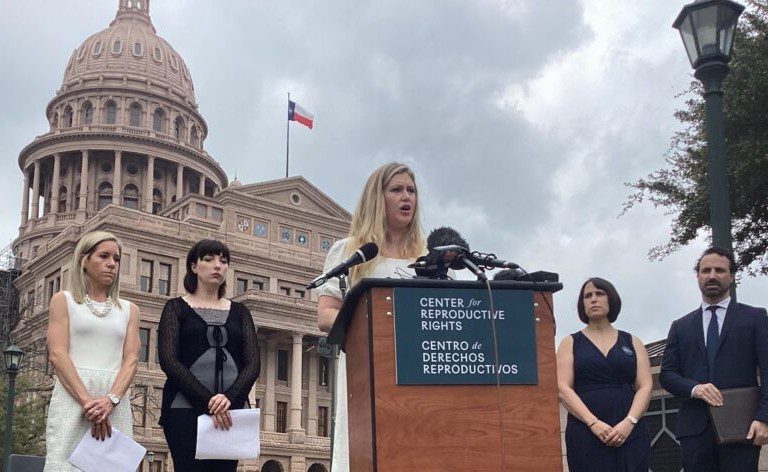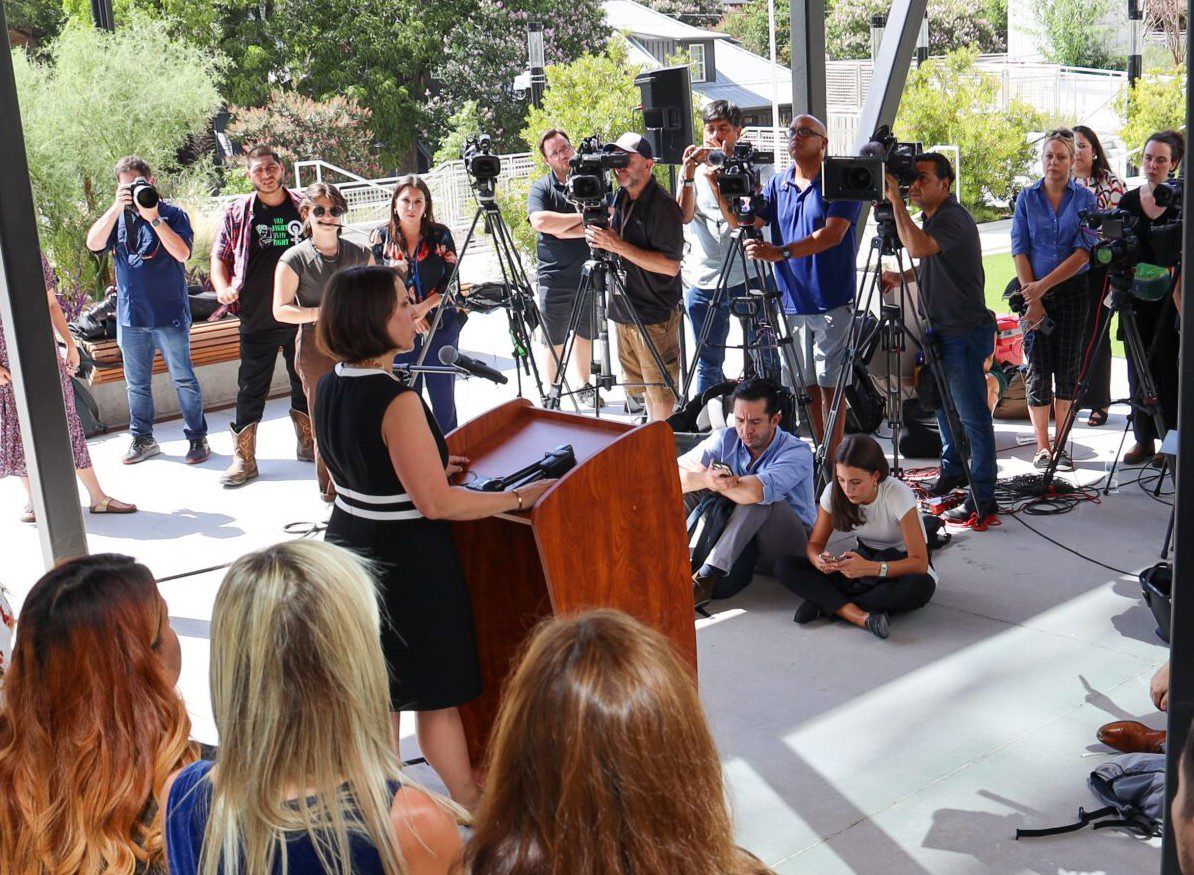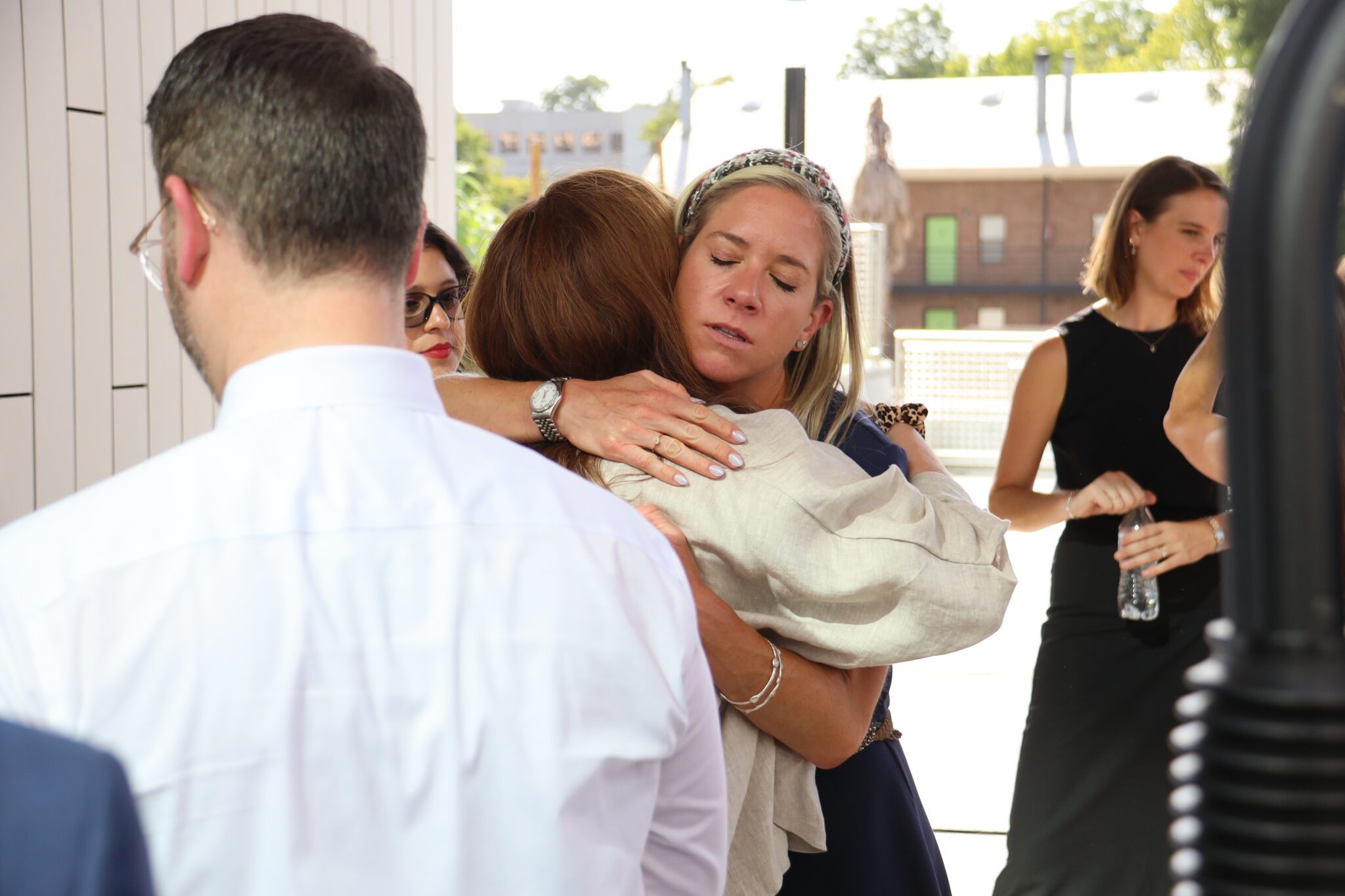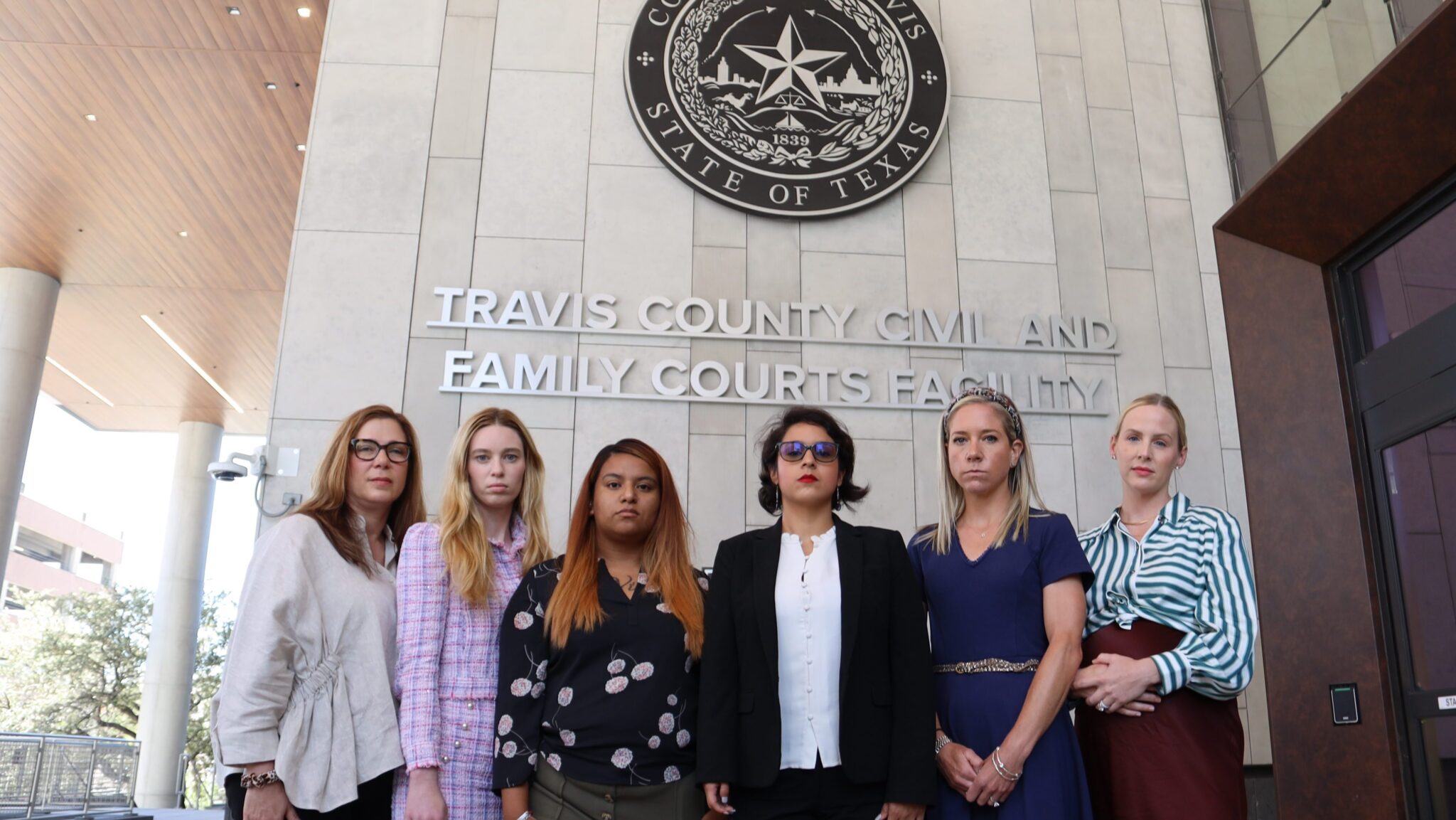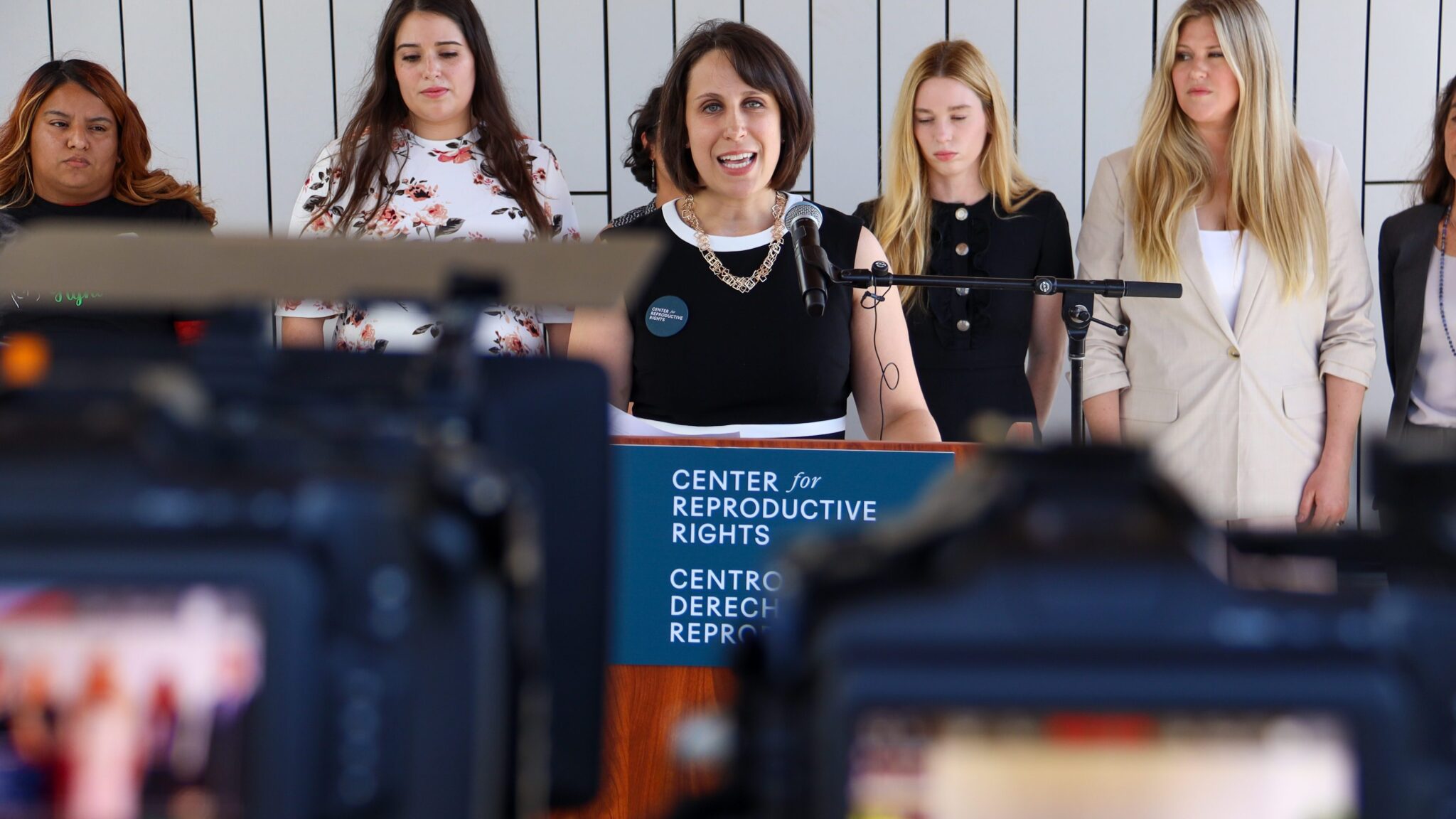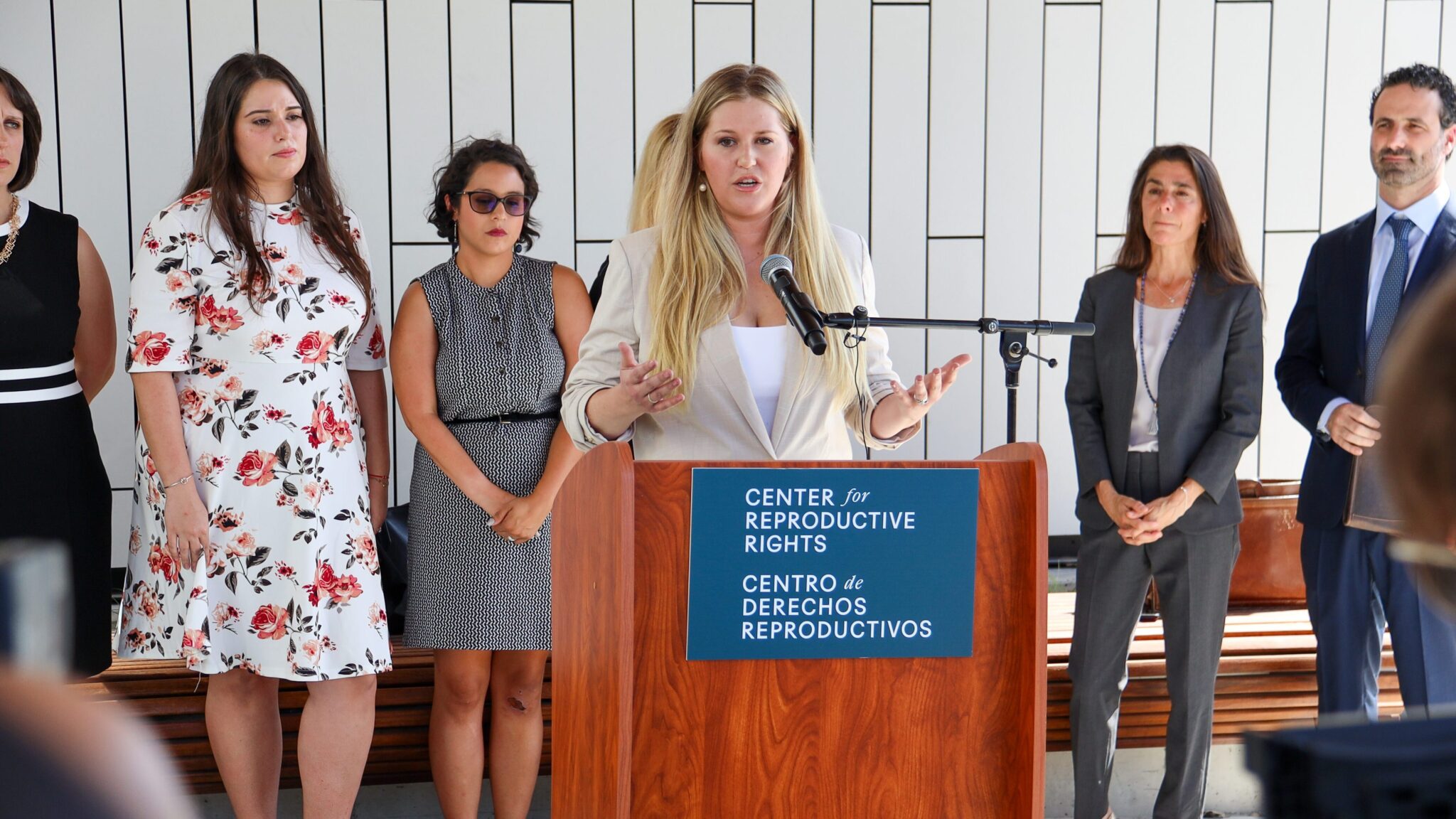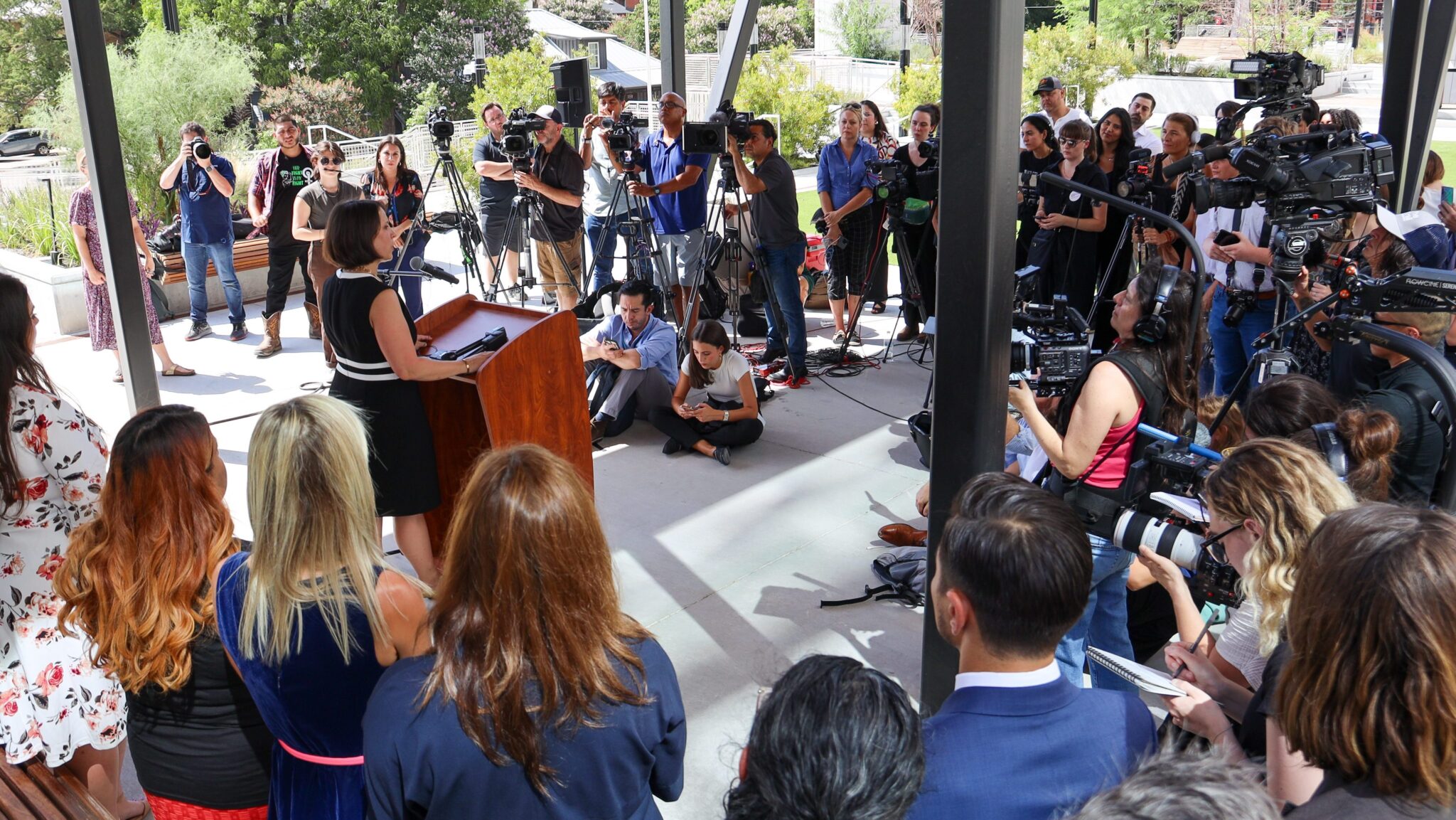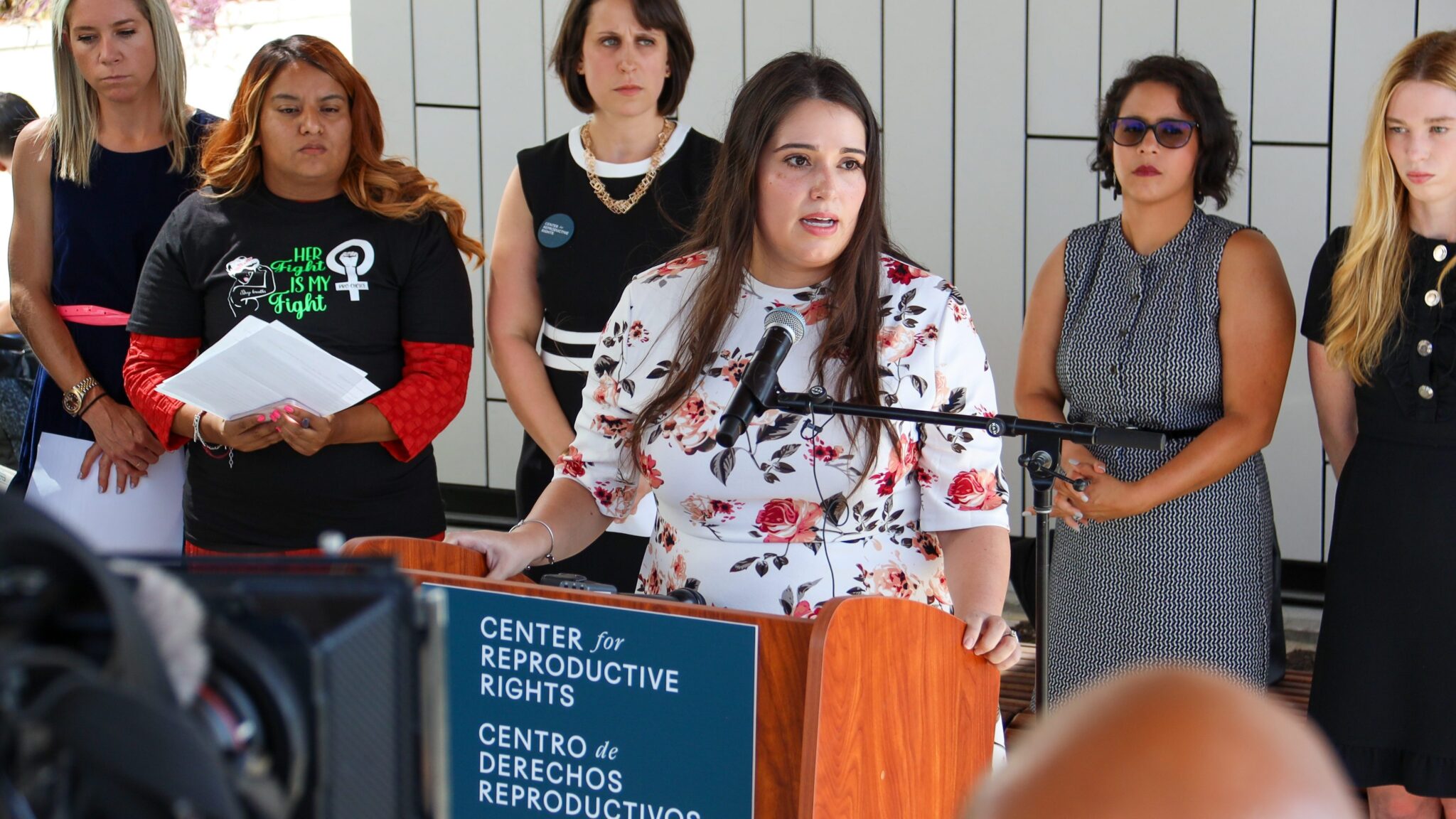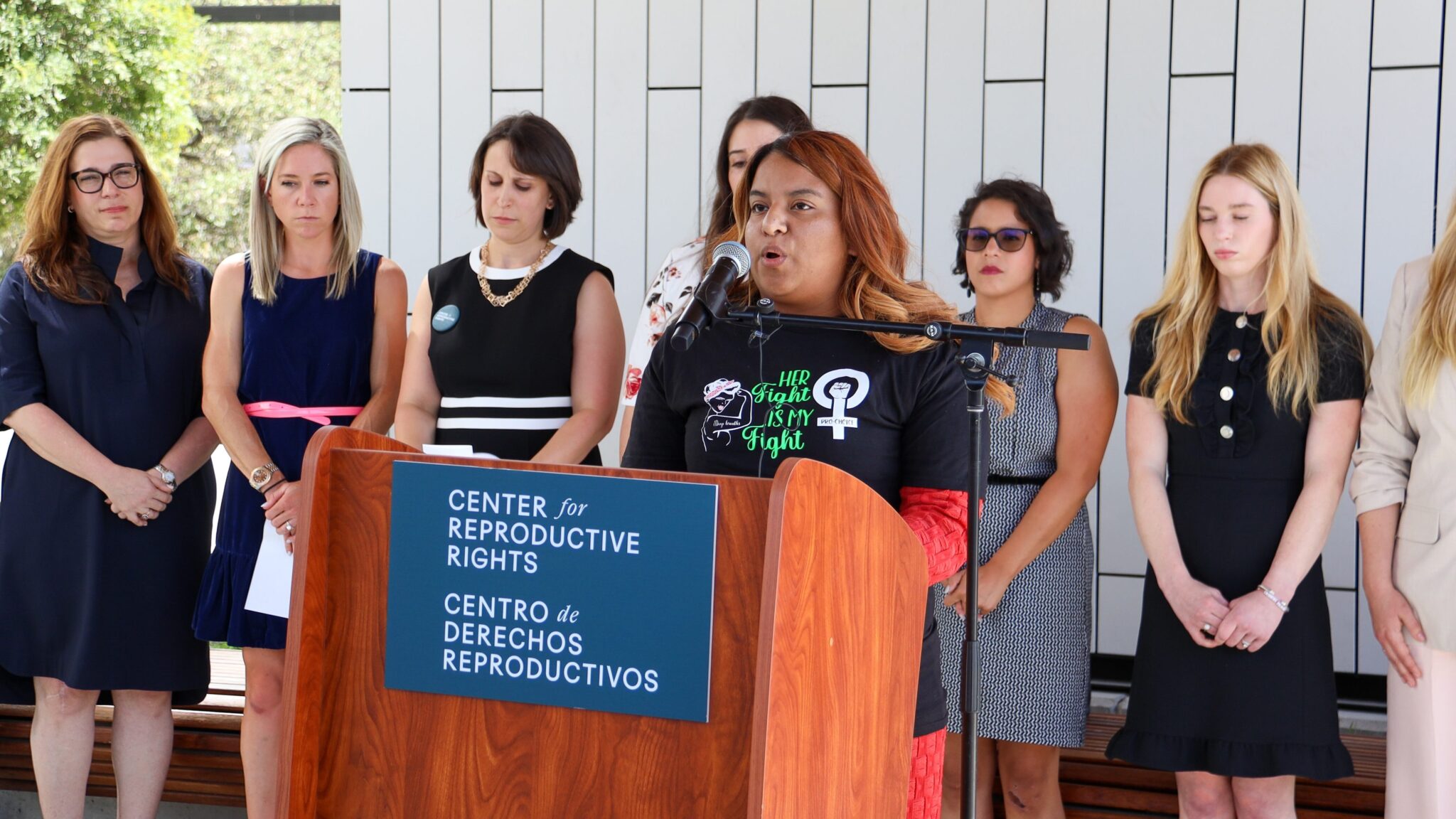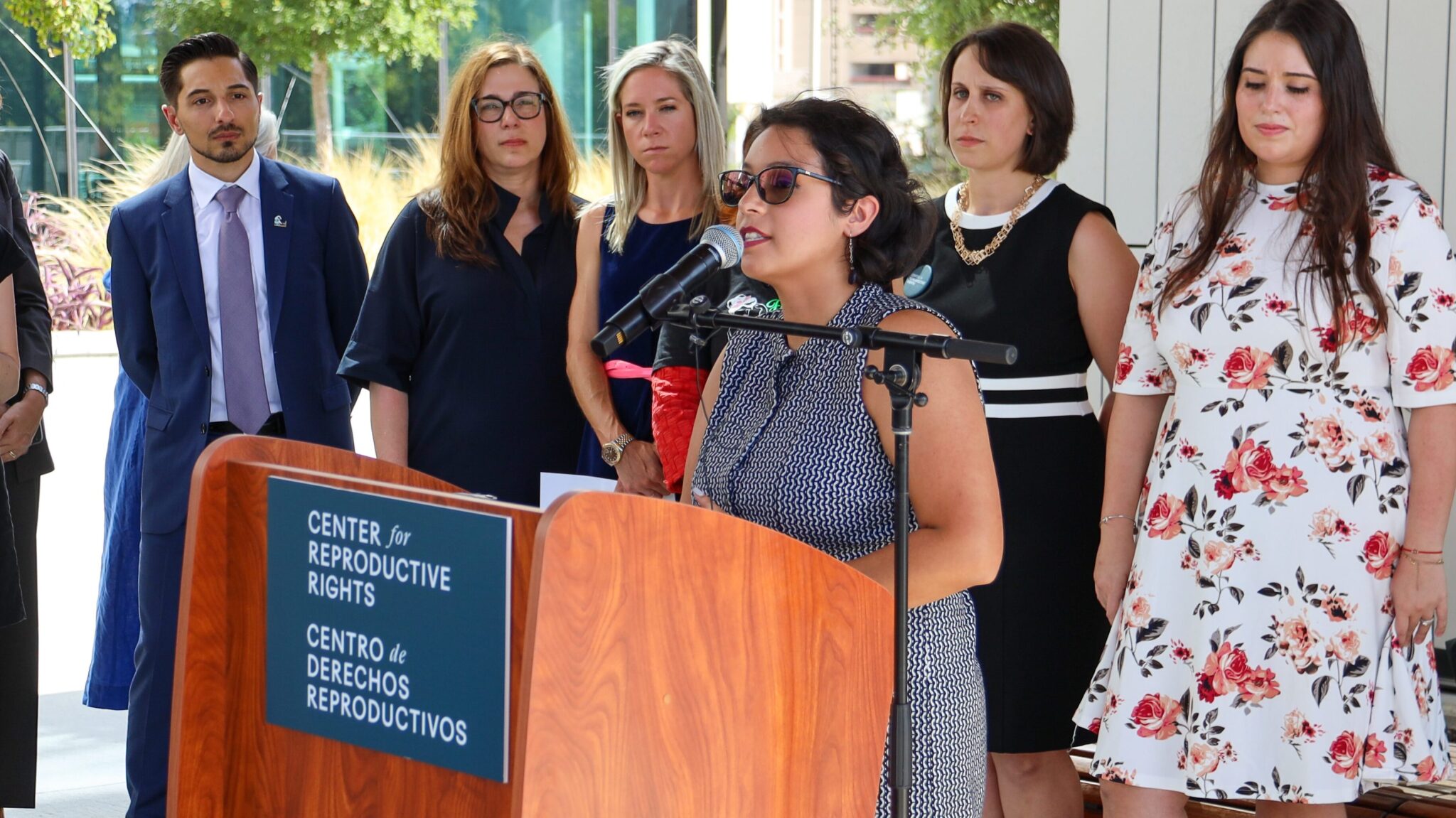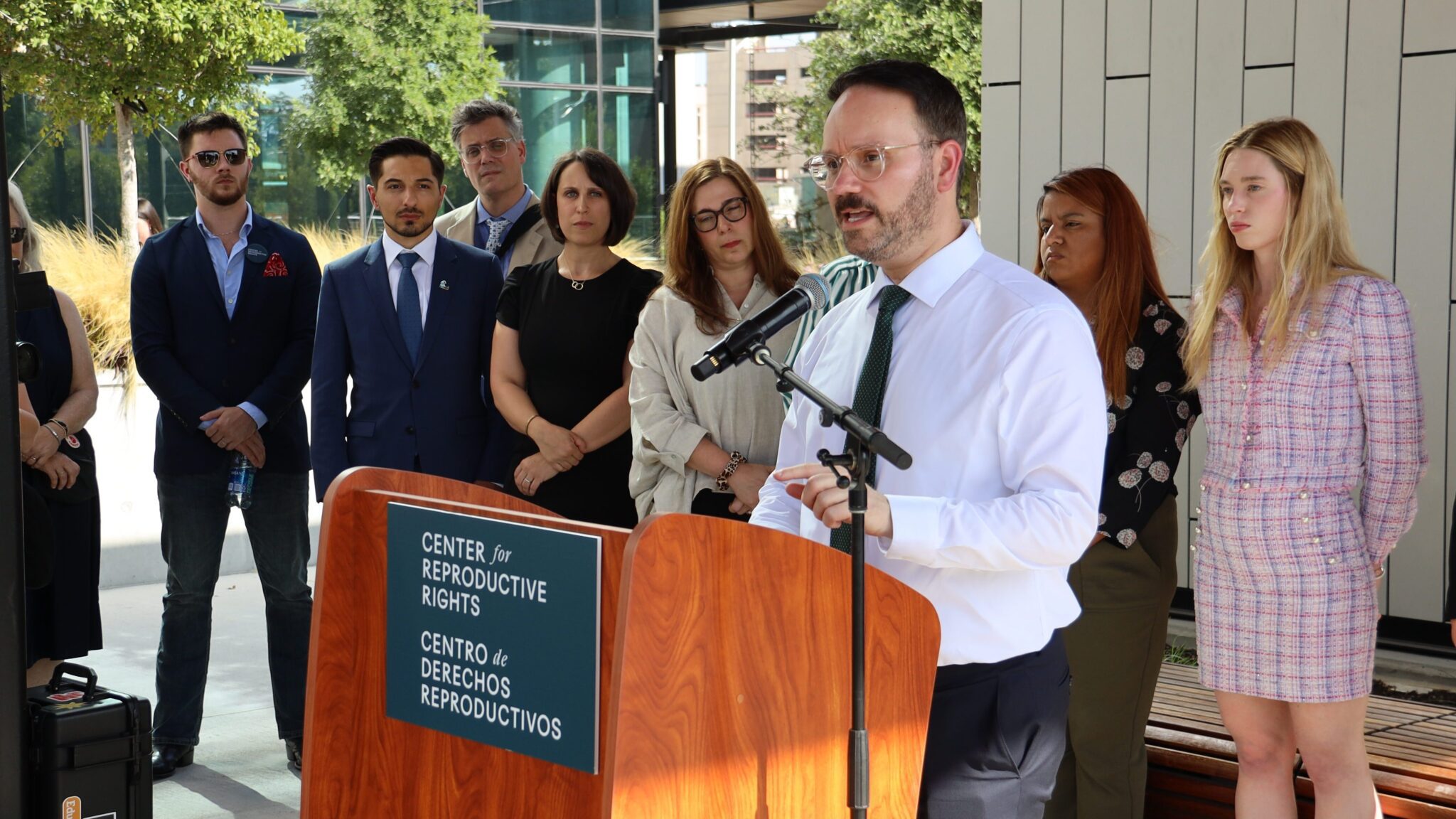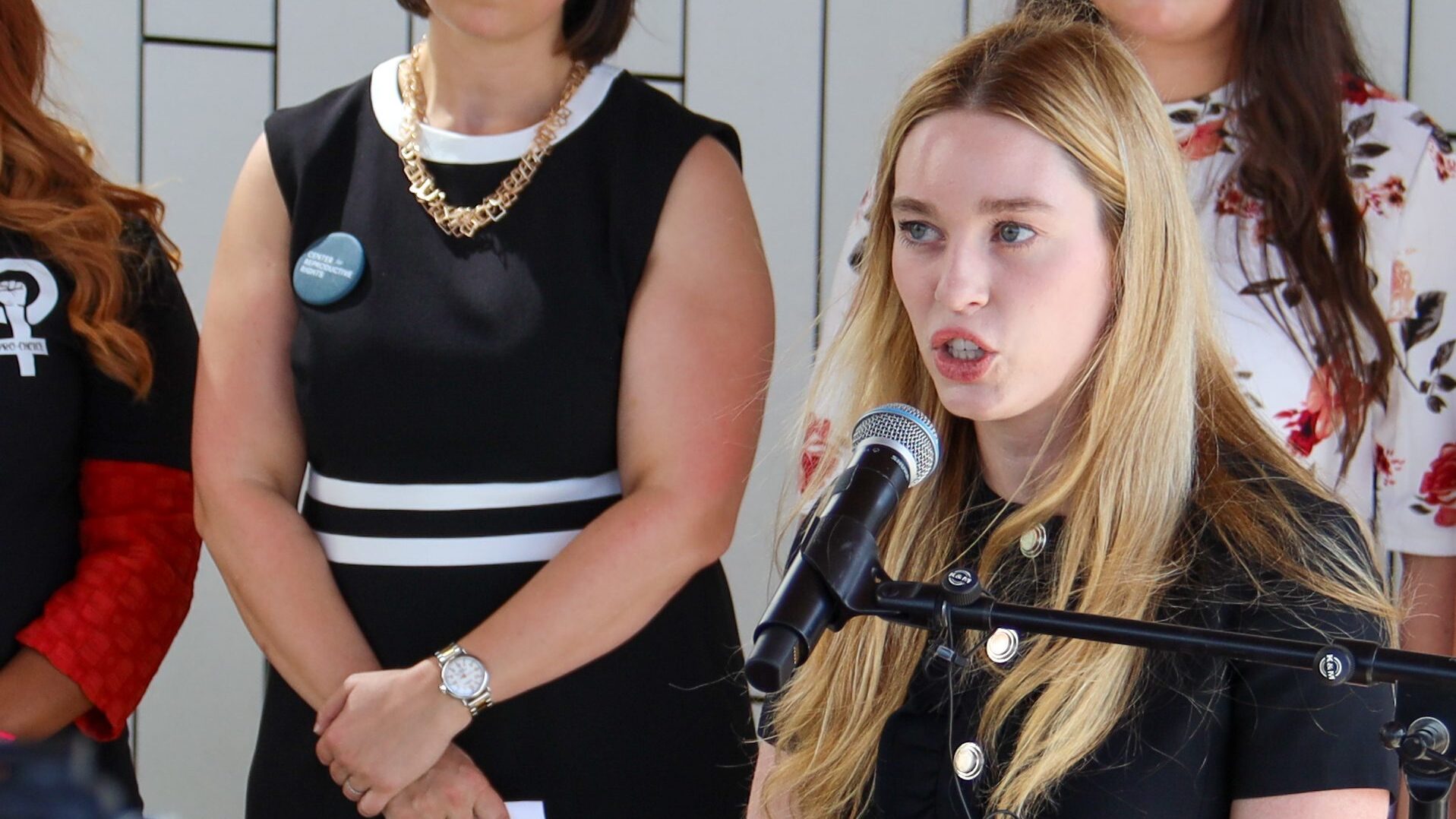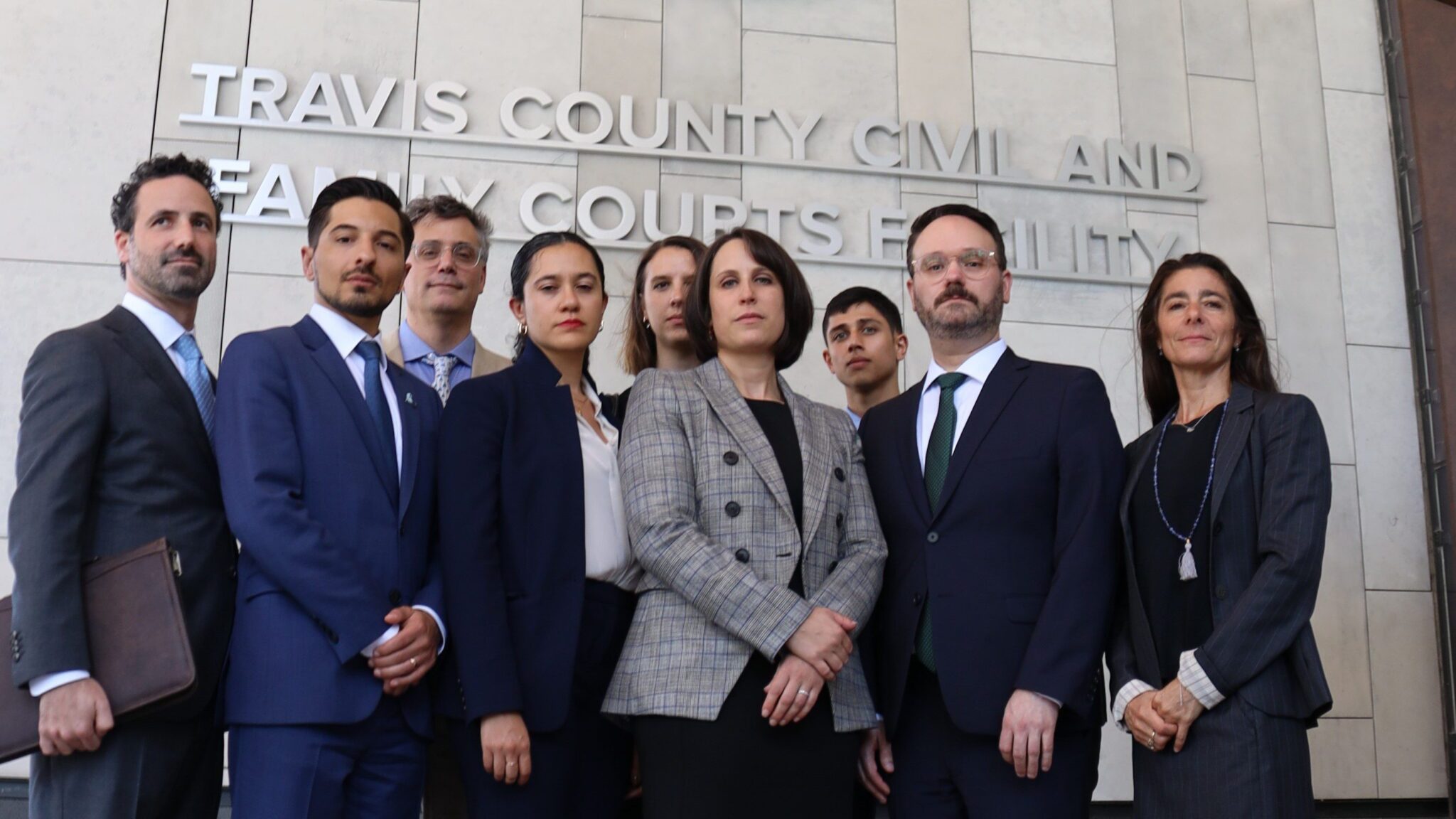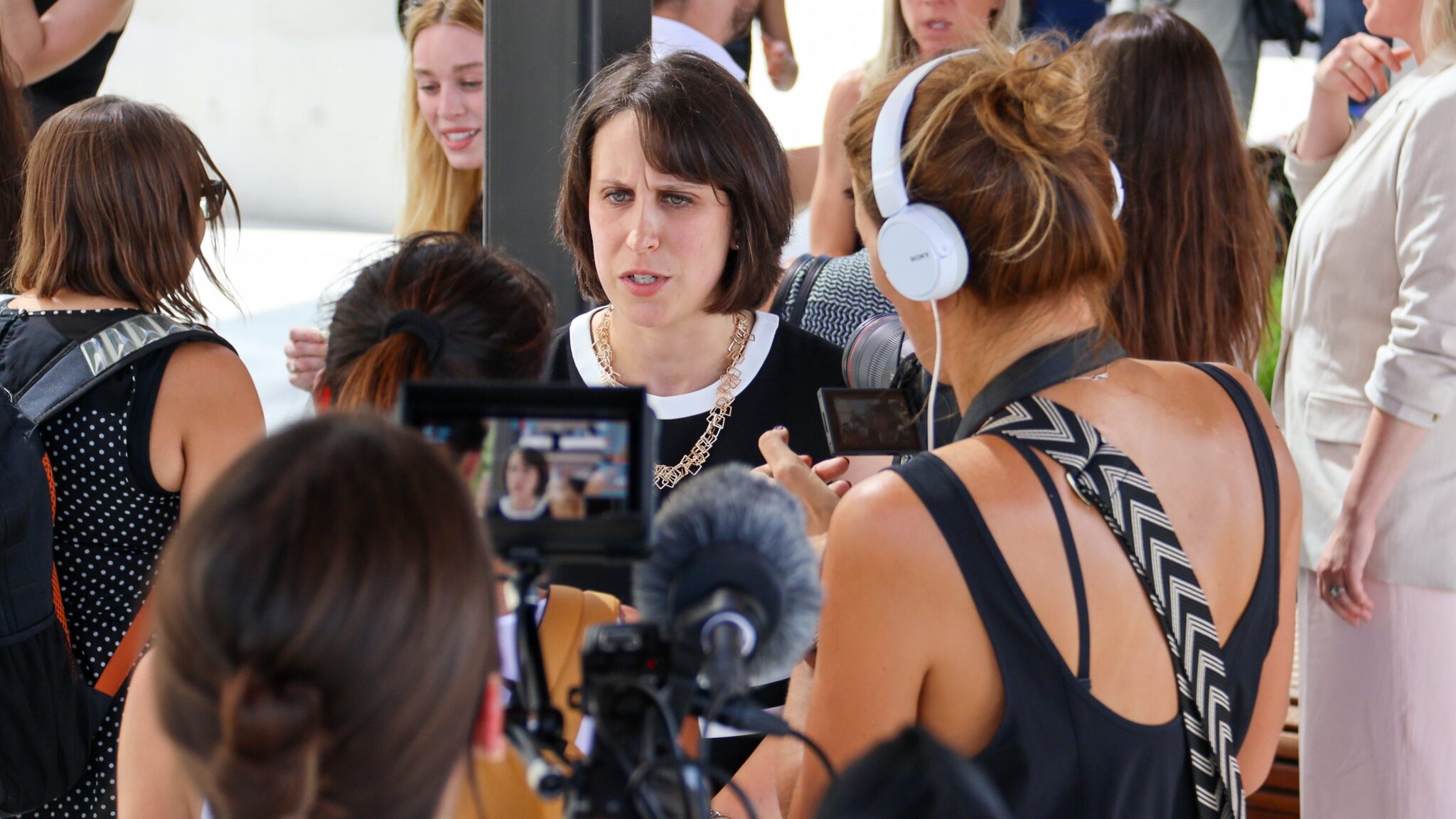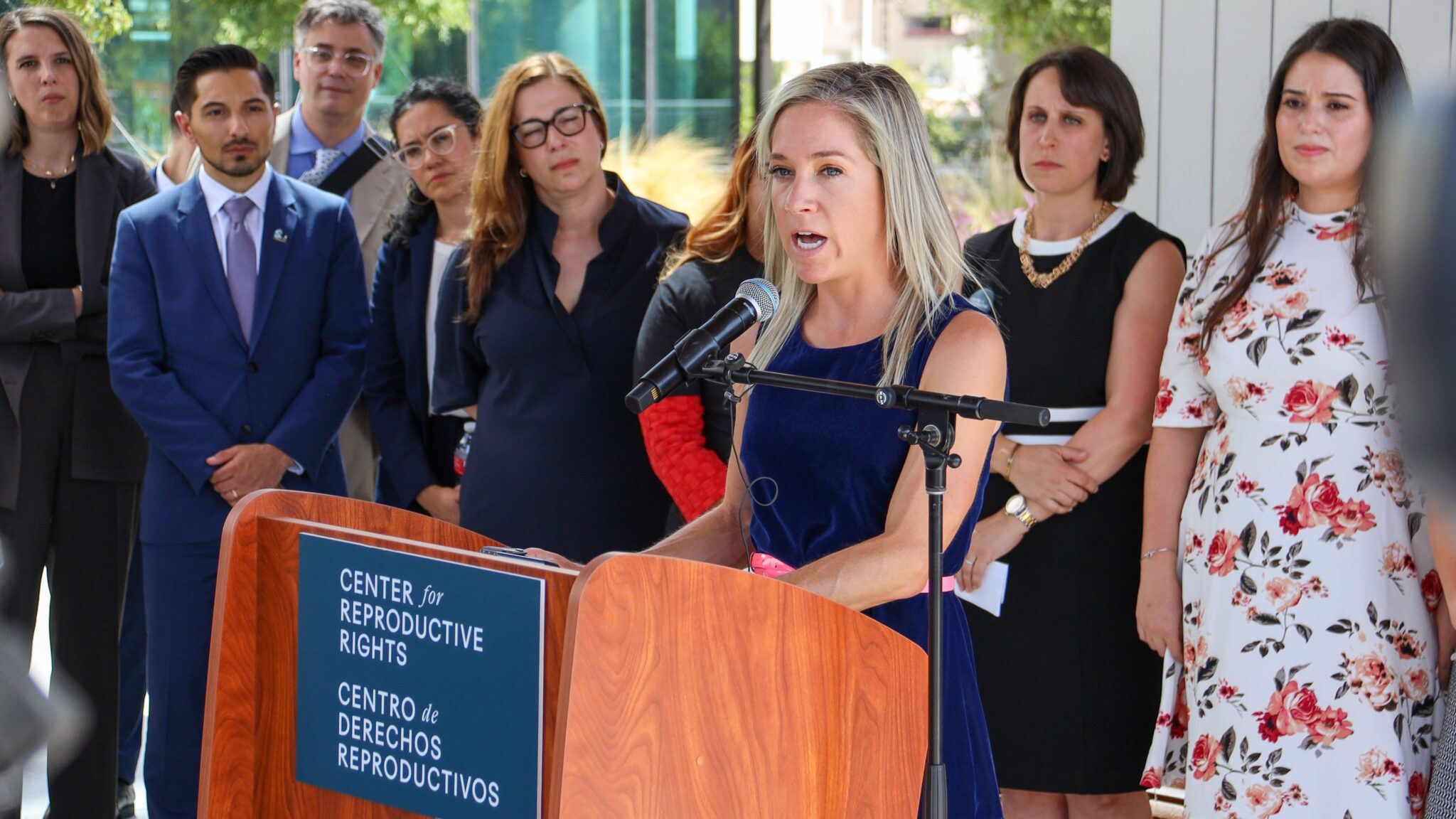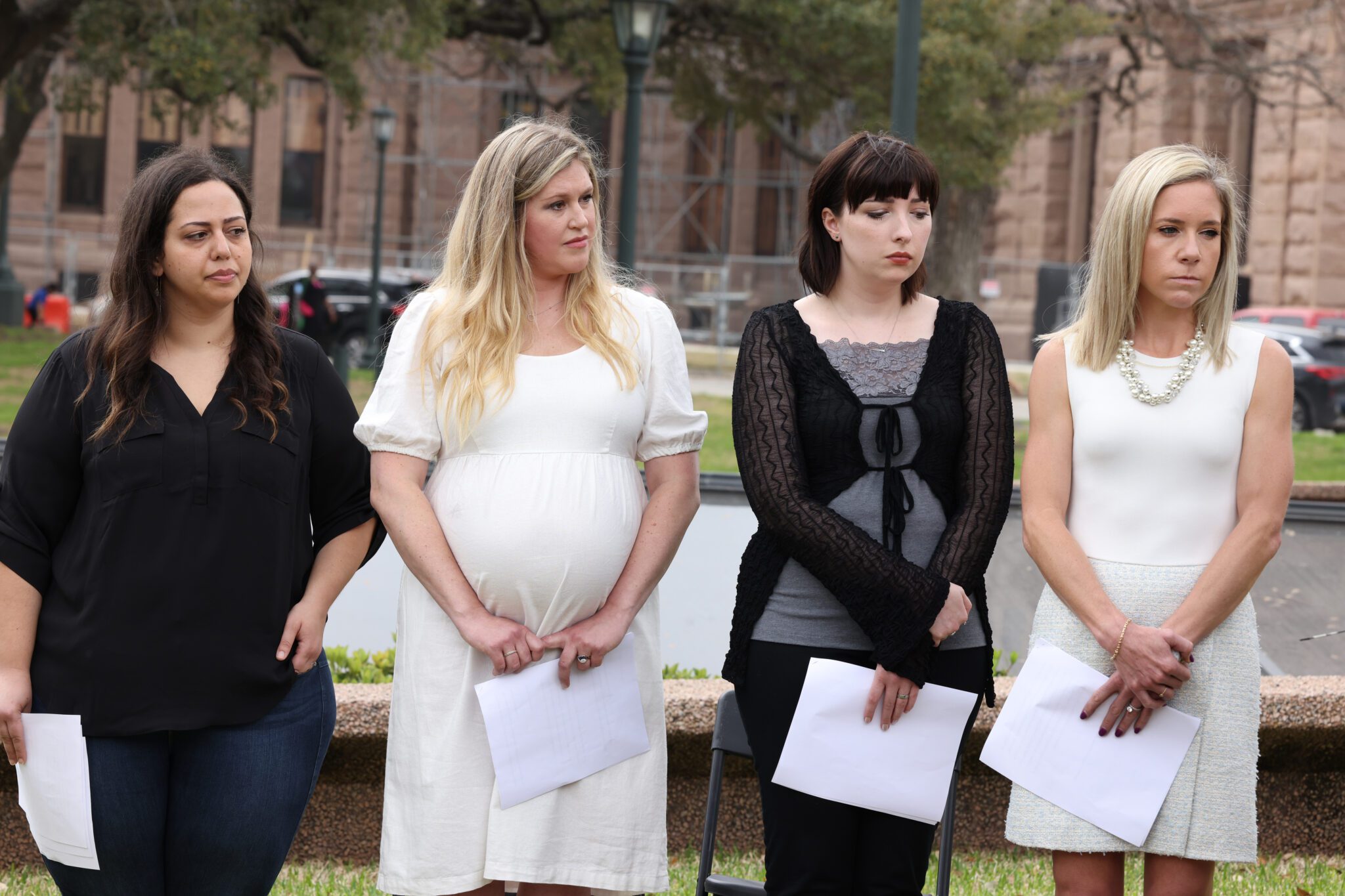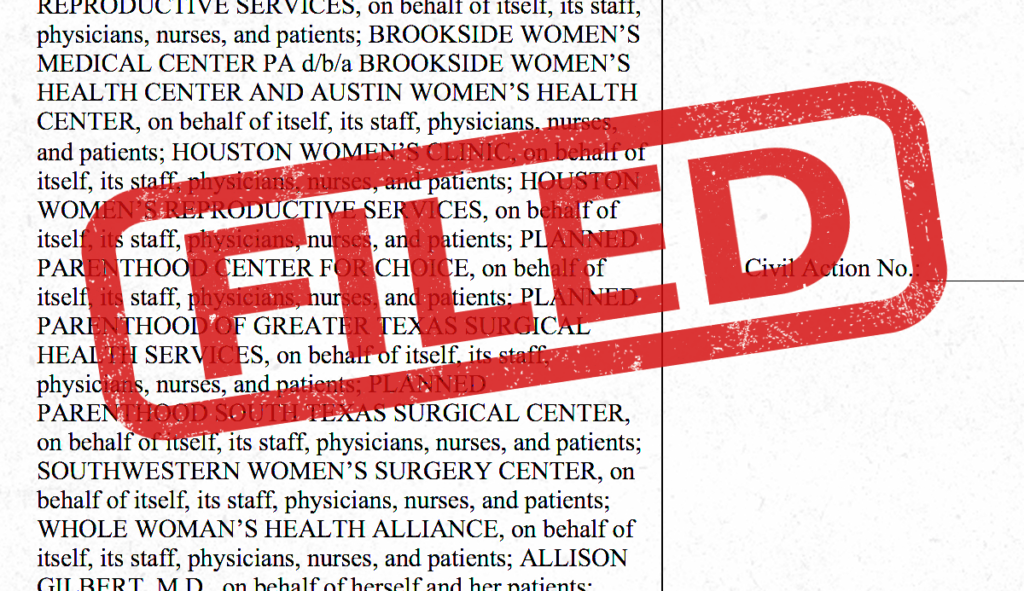Hearing Wrap-up: Zurawski v. State of Texas
Texas women denied abortion care give riveting testimony while the state tries to dismiss the lawsuit.
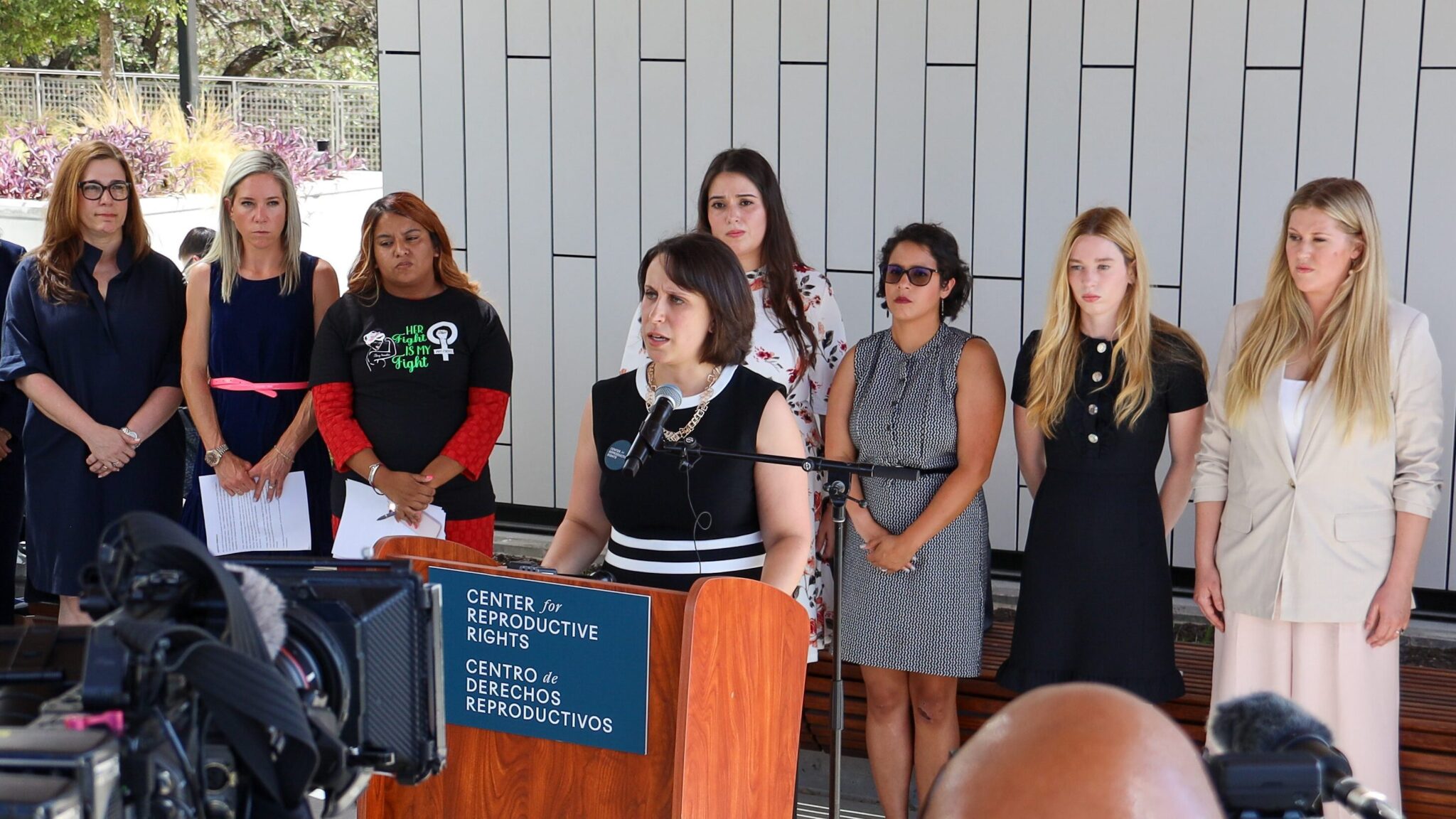
A two-day hearing in a Texas state court in Austin was held July 19–20 in Zurawski v. State of Texas, with riveting testimony by some of the women denied abortion care despite facing severe pregnancy complications that risked their health, fertility and lives. The Center for Reproductive Rights is representing 15 plaintiffs in the case—13 Texas women denied abortion care and two Texas obstetrician-gynecologists.
Read more about the case.
Zurawski v. State of Texas
Case details, news, filings, and more.
At the hearing, the court heard arguments on whether to grant the plaintiffs’ request to temporarily block Texas’s abortion bans as they apply to pregnancy complications and other health conditions that may be difficult to treat during pregnancy while the case proceeds. It also heard arguments on the state’s request to dismiss the case.
Five of the plaintiffs in the case—four women denied abortions and an OB-GYN—provided testimony at the hearing, along with two experts in obstetrics and emergency medicine. After each day of the hearing, the Center held a press briefing with lawyers and plaintiffs addressing questions from the press.
“Each of these women have been through the unthinkable, and reliving that trauma in court was agonizing,” said the Center’s Senior Staff Attorney Molly Duane. “No one should have to do that, but they did it to save other Texans from the same fate. They did it to hold the state of Texas accountable for the suffering their laws are causing. Yet, instead of taking responsibility for the harm these bans have caused, the State’s attorneys egregiously belittled and shamed the women who testified.”
The state of Texas is requesting that the court dismiss the case, claiming that some of the women—whose fertility is now compromised due to being denied abortions—no longer need to worry about the bans because they are unlikely to become pregnant again, and thus have no grounds to sue. Texas also claims that the plaintiffs who are currently pregnant again can’t be certain they’ll experience complications again, and thus have no grounds to sue.
While Texas’s state laws banning abortion contain an exception for the life and health of the pregnant person, the state’s hostile abortion landscape has made physicians afraid to rely on the exception. These extreme bans criminalizing abortion have stoked fear and confusion among pregnant people and doctors throughout the state.
Watch replays of the press briefings.
The plaintiffs who testified at the hearing were:
- Amanda Zurawski, lead plaintiff, who developed sepsis and nearly died after being refused an abortion when her water broke at 18 weeks. At a press briefing, Zurawski said, “I became so ill that I had to spend a week in the hospital, three days of which were in the intensive care unit. This was all because doctors weren’t allowed to give me an abortion until my life was on the line, despite the fact that there was absolutely no way my daughter would survive.”
- Ashley Brandt, who was forced to leave the state for abortion care after one of the twins she was carrying was diagnosed with a fatal condition that reduced her other twin’s chances of survival. “It was my first time speaking publicly about the situation I experienced. During the cross examination, most of their questions were an attempt to try to shift blame on my doctors, which isn’t the case at all,” said Brandt after the hearing.
- Samantha Casiano, who was forced to carry a nonviable pregnancy to term and give birth to a baby who died just four hours after birth. Casiano recounted how her daughter, who was diagnosed with anencephaly, suffered greatly, gasping for air before dying. “I was so sorry that I couldn’t help her or release her going to heaven sooner rather than later,” said Casiano. ” I felt so bad. She had no mercy. There was no mercy there for her, and I couldn’t do anything.”
- Dr. Austin Dennard, an OB-GYN who herself had to travel out of state to receive abortion care for a nonviable pregnancy. “I felt like my pregnancy was not my own, that it belonged to the state because I no longer had a choice of what I could do,” said Dr. Dennard in an ABC News report. “I felt abandoned. I couldn’t believe that after spending my entire life in the state, being a sixth generation Texan, practicing medicine in the state, that the state had completely turned their back on me.”
- Dr. Damla Karsan, a Houston-based OB-GYN who provides gynecological, prenatal and obstetric care as part of her practice. Dr. Karsan called the state’s arguments “infuriating, so dismissive and really insulting.”
After the court hearing, additional plaintiffs in the case joined the press briefing, including:
- Lauren Miller, who was forced to leave the state for abortion care after learning one of the twins she was carrying was unlikely to survive and could reduce her other twin’s chances of survival, said, “I wanted to look and to see the people who put my life at risk, put my son’s life at risk, and who nearly put my other son through a short, tortuous existence.” She added, “It’s absurd to me that my health care was denied because of this law. . . What the state of Texas said to us is that we are disposable.”
- Elizabeth Weller, whose water broke at 19 weeks and who had to wait until she developed a life-threatening infection before obtaining an abortion, said, “It is hard for me to understand a statement of pro-life when you are literally gambling women’s lives.” She added that the state was “not pro-life—and in a sense it’s almost pro-torture. Women will die if they haven’t already.”
- Taylor Edwards, who had to travel out of state for abortion care after her baby was diagnosed with a fatal condition, described the state’s language at the hearing as “another gut punch” and said it was “meant to scare women.” “It felt like my state truly didn’t care,” she added.
Media Coverage of the Hearing
View media highlights about the riveting testimony given at the hearing.
“The differences in the parties’ positions boil down to this: The state wants to err on the side of preventing more abortions even if it harms women and their families, while the plaintiffs want to err on the side of protecting the lives, health and future fertility of all Texans,” said Duane. “This is the bare minimum that Texans are entitled to under the law.”
Zurawski v. State of Texas is the first lawsuit brought on behalf of women denied abortions since the U.S. Supreme Court eliminated the constitutional right to abortion in June 2022 and cleared the way for states to ban it entirely.
A ruling in the hearing is expected in several weeks.
View photos of the press briefings:
About the Plaintiffs
More about the Texas women and physicians who are plaintiffs in the case.
